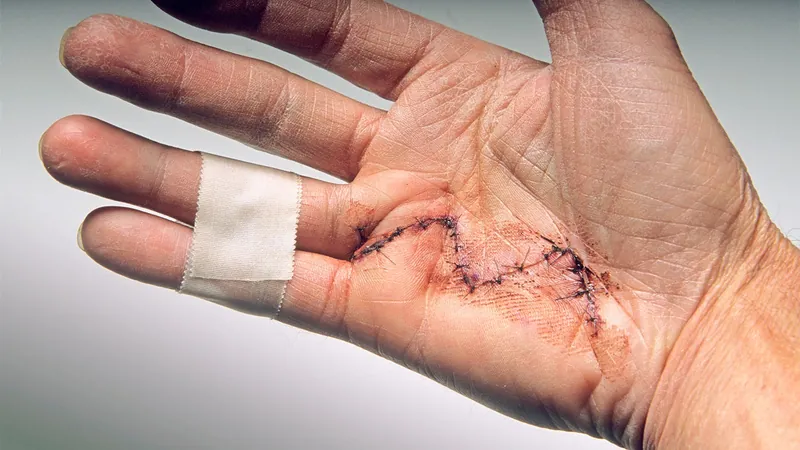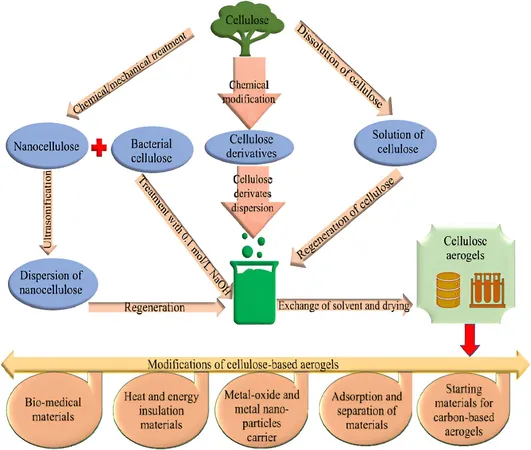
Shocking Trial Results: Surgery Trumps Collagenase Injections for Dupuytren's Contracture!
2024-10-09
Author: Jia
Groundbreaking Trial Findings
In a groundbreaking trial comparing the effectiveness of collagenase injections and limited fasciotomy for treating Dupuytren's contracture, the findings reveal a clear victor: surgery! The research, outlined in the New England Journal of Medicine, indicates that the surgical procedure greatly outperforms the non-invasive alternative.
Study Overview
The study, known as the DISC (Dupuytren's Interventions Surgery vs Collagenase) trial, involved 672 participants, all suffering from finger contractures of at least 30° in key joints. After completing the study, it was evident that those who underwent a limited fasciotomy reported an average patient health score of 11.9—substantially lower (better) than the 17.8 average reported by those receiving collagenase injections on the Patient Evaluation Measure-Hand Health Profile (PEM). This difference signifies that surgical intervention offers more significant improvement in hand function.
Statistical Insights
Now, let’s break down the numbers: Of the 599 patients whose data contributed to the primary analysis, the outcomes showed that surgical patients had superior scores across various assessments conducted at 3, 6, 12, and even 24 months post-treatment. Specifically, a notable 14.6% of collagenase patients required additional treatment for recurrent contractures during the study, compared to only 3.4% of those who had surgery.
Risks and Complications
Not everything in the surgical realm was rosy, however. The trial highlighted a concerning trend—moderate to severe complications arose more frequently in the surgical group (5.1% vs. 1.8%). One unfortunate participant even required the amputation of a finger due to complications associated with the surgery, underscoring the risks that come with surgical interventions.
Expert Insights
Despite these risks, the findings ultimately reveal that limited fasciotomy holds greater efficacy than collagenase injections in terms of long-term outcomes. The study’s lead author, Joseph Dias, MD, of the University Hospitals of Leicester NHS Trust in England, noted that while collagenase injections are often preferred for their convenience and quicker recovery, they were determined to be "not noninferior" to surgery in relieving symptoms of Dupuytren's contracture.
Re-evaluating Treatment Strategies
Importantly, while collagenase injections might appeal to some who want to avoid the risks associated with surgery, these results pave the way for a re-evaluation of treatment strategies moving forward. They certainly raise eyebrows about whether the advantages of a less invasive approach truly outweigh the benefits of surgical options.
Ongoing Debates
The research has reignited debates within the medical community regarding the best treatment approaches for Dupuytren's contracture, as findings indicate that even beyond efficacy, patient preferences for treatment risks and recovery times play a significant role in decision-making.
Study Limitations
Though the study faced limitations—including being unblinded and disrupted by the COVID-19 pandemic—the data still provides significant insights. With calls for longer-term follow-up studies to assess the durability of both treatment options, the conversation about how to best address Dupuytren's contracture is far from over.
Conclusion
In conclusion, for patients grappling with Dupuytren's contracture, surgery stands out as the more effective solution according to recent evidence. Stay tuned for further developments in this evolving treatment landscape!



 Brasil (PT)
Brasil (PT)
 Canada (EN)
Canada (EN)
 Chile (ES)
Chile (ES)
 España (ES)
España (ES)
 France (FR)
France (FR)
 Hong Kong (EN)
Hong Kong (EN)
 Italia (IT)
Italia (IT)
 日本 (JA)
日本 (JA)
 Magyarország (HU)
Magyarország (HU)
 Norge (NO)
Norge (NO)
 Polska (PL)
Polska (PL)
 Schweiz (DE)
Schweiz (DE)
 Singapore (EN)
Singapore (EN)
 Sverige (SV)
Sverige (SV)
 Suomi (FI)
Suomi (FI)
 Türkiye (TR)
Türkiye (TR)